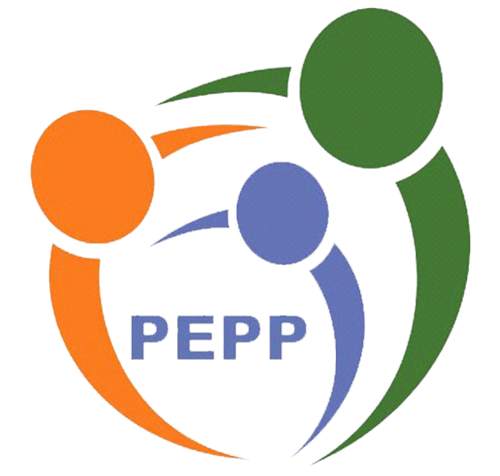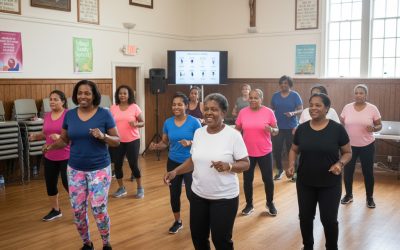A church-based Health Ministry Team helps people move from good intentions to daily practices that improve health and deepen community. With the right roles, simple training, and a clear 90-day plan, your congregation can start offering meaningful support—without overloading staff or volunteers.
Core Roles
Faith Community Nurse (FCN) — RN required
- Leads health education and screenings; provides care navigation and confidential consults.
- Builds referral pathways to clinics and community resources.
- Trains and supervises Health Promoters.
Health Promoters (Lay leaders or health professionals)
- Host screening tables, share weekly tips, and coordinate sign-ups.
- Model simple habits (Movement Minute, water challenge, sleep hygiene).
- Support data collection (counts, follow-ups) and testimonies.
Pastoral/Ministry Sponsor
- Aligns the ministry with church vision and calendar.
- Champions wellness from the pulpit and in communications.
Coordinator (admin or gifted volunteer)
- Handles scheduling, supplies, consent forms, and volunteer rotations.
- Maintains resource lists and follow-up scripts.
Training Essentials (4 compact modules)
Module 1: Mission & Boundaries (45–60 min)
- Purpose of a Health Ministry; scope vs. medical care.
- Privacy and documentation basics (what to record, what not to record).
- How to make warm referrals (clinics, counseling, social services).
Module 2: Screenings & Safety (60–75 min)
- Blood pressure, height/weight/BMI basics, when to pause/stop.
- What counts as an urgent referral and how to respond.
- Infection control, equipment care, and physical setup.
Module 3: Communication That Works (45–60 min)
- One “mindset moment” per week (hydration, plate method, sleep routine).
- Short scripts for after-service conversations and follow-ups.
- Inclusive language and culturally aware care.
Module 4: Small Steps, Big Impact (45–60 min)
- Designing low-lift challenges (step counts, movement minute, sugar-swap).
- Integrating D.I.E.T. & L.I.V.E. small groups for deeper change.
- Tracking participation and collecting stories.
The First 90 Days (Quick-Start Plan)
Days 1–30: Launch & Awareness
- Commission your team on a Sunday; announce the purpose and schedule.
- Begin a weekly Movement Minute (60–120 seconds) and a Mindset Moment tip.
- Hold a Welcome Table with clinic resources and interest sign-ups.
- Equipment: 2 automatic BP cuffs, alcohol wipes, tape measure, stadiometer or wall chart, disposable covers, gloves, clipboard, handouts.
Screening #1 (End of Month 1): Blood Pressure Sunday
- Offer BP checks after services for 45–60 minutes.
- Hand out a simple “Know Your Numbers” card with next steps and prayer support.
Days 31–60: Build the Rhythm
- Start a 4-week “Walk & Talk” or chair-fitness group.
- Run a hydration or sleep micro-challenge (one tip per week).
- Host a D.I.E.T. & L.I.V.E. interest session to preview the 10-week group.
Screening #2 (Mid-Month 2): BMI & Waist Circumference
- Pair with a short “Plate Method” demo and healthy snack samples.
- Provide referrals to dietitians, community programs, or walking groups.
Days 61–90: Deepen & Refer
- Launch a 10-week D.I.E.T. & L.I.V.E. small group (limit 10–12 per group).
- Offer BP re-checks for people above normal last month.
- Collect 2–3 short testimonies; share one during service (with permission).
- Meet as a team to review what worked, numbers served, and next 90-day focus.
Sample 12-Week Calendar (Plug-and-Play)
Week A
- Sunday: Movement Minute + Mindset tip (hydration).
- After service: BP screening table.
- Midweek: Walk & Talk (30 min).
Week B
- Sunday: Movement Minute + Mindset tip (plate method).
- After service: Healthy snack demo + resources.
- Midweek: Chair-stretch class (20 min).
Week C
- Sunday: Movement Minute + testimony.
- After service: BMI/waist checks + referral list.
- Midweek: D.I.E.T. & L.I.V.E. Group — Session 1.
Week D
- Sunday: Movement Minute + Mindset tip (sleep).
- After service: BP re-checks for follow-ups.
- Midweek: D.I.E.T. & L.I.V.E. Group — Session 2.
(Repeat the A–D rhythm with fresh tips and two screenings per month.)
Screening Ideas that Fit a Sunday
Core:
- Blood Pressure (auto cuffs), BMI/waist, pulse rate after light walk.
Add-Ons (quarterly):
- Fall risk quick check for seniors (chair stand, balance).
- Vision screening with referral cards.
- Stress check-in + 2-minute breathing exercise.
Table Setup:
- 2–3 stations, privacy screens if possible, seating for older adults.
- Clear signage: “Free Health Checks — 3 Minutes.”
- Handouts in large print; Spanish versions if needed.
Scripts & Follow-Ups (Use and adapt)
After-Service Invitation:
“Hi, we’re offering free blood pressure checks today. It takes about three minutes and you’ll leave with simple tips and local resources.”
Normal Result:
“Your reading today is within a healthy range. Here’s a card to track it this month. Would you like a weekly tip by email?”
Elevated Result (non-urgent):
“Your numbers are a bit high. We recommend a clinic follow-up within two weeks. Here are nearby clinics and a prayer/support card. May we check you again next month?”
Urgent Indicators:
If readings meet your safety protocol thresholds, pause screening, seat the person, recheck after 5 minutes, and follow the escalation script (notify FCN/pastor; call 911 if needed).
Supplies Checklist
- 2 automatic BP cuffs (adult + large cuff)
- Alcohol wipes, gloves, hand sanitizer
- Tape measure, scale, stadiometer/wall chart
- Clipboards, pens, privacy screens (portable)
- “Know Your Numbers” cards, referral lists, consent forms
- Signage and a small lockbox for forms
Measuring Impact (Keep it simple)
- Counts: People served at each screening or class.
- Habits: One-question monthly poll (“Which healthy step did you practice?”).
- Stories: Two short testimonies per quarter.
- Follow-ups: Recheck rate for elevated BP; number of referrals made.
Avoiding Common Pitfalls
- Start small; don’t launch every idea at once.
- Protect confidentiality—no public sharing of numbers or conditions.
- Prioritize accessibility (chairs, large-print materials, low-stair routes).
- Rotate volunteers to prevent burnout; celebrate wins monthly.
Ready to Customize Your Plan?
PEPP can help you train a Health Ministry Team, set up screening days, and launch a D.I.E.T. & L.I.V.E. small group tailored to your church calendar.
CTA: Book a 30-minute consult to customize a plan for your church.
- Email: peppproject2014@gmail.com
- Phone: (865) 226-9894
- D.I.E.T. & L.I.V.E. (book/program): betty@dietandlive.com

